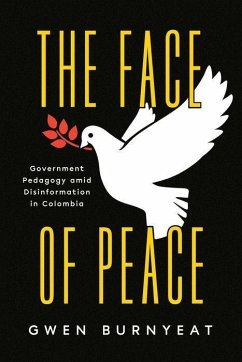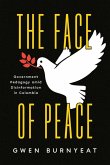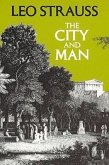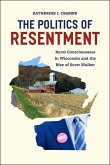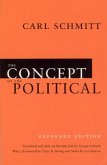"Colombia's 2016 peace agreement with the FARC guerrilla sought to end fifty years of war, and won President Juan Manuel Santos the Nobel Peace Prize. Yet Colombian society rejected it in a polarizing referendum, amid an emotive disinformation campaign. A renegotiated deal began to be implemented, albeit haunted by a legitimacy deficit. Gwen Burnyeat, a political anthropologist and peace practitioner, joined the Office of the High Commissioner for Peace, the government institution responsible for peace negotiations, which created a "peace pedagogy" strategy, a world first in peace processes, to explain the agreement to Colombian society. Her multi-scale ethnography, based on unprecedented access to government officials, reveals the challenges they experienced in representing the government to skeptical audiences and translating the peace process for public opinion. Through peace pedagogy, officials embodied the government and became the relay between state and citizens--effectively, the face of the Santos government. Burnyeat argues that Santos' failure to mobilize society was the fatal flaw in the peace process. As in the UK's Brexit referendum and the US Trump election, rational explanations were powerless against disinformation because political views are shaped by emotions, culture, history, and identity. The Face of Peace offers the Colombian case as a mirror to the global crisis of liberalism, shattering the fantasy of rationality that haunts liberal responses to "post-truth" politics"--
Hinweis: Dieser Artikel kann nur an eine deutsche Lieferadresse ausgeliefert werden.
Hinweis: Dieser Artikel kann nur an eine deutsche Lieferadresse ausgeliefert werden.

